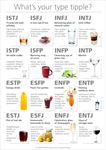Recruitment
Talking psychometrics with the Start, Scale, Grow podcast
Kevin Wood, Global Marketing
Talent selection, remote working, and psychological safety are among the topics covered on the Start, Scale, Grow podcast with consulting psychologist Cameron Nott
How personality type affects team performance and job satisfaction
Global Marketing, The Myers-Briggs Company
New research sends clear message to team leaders
Should personality assessments be used in hiring?
Global Marketing, The Myers-Briggs Company
How to decide if and when to include personality assessments in the selection proces
Were you asked if you wanted to go back to the office?
Kevin Wood, The Myers-Briggs Company
If not, you might be part of a hybrid strategy that’s about to fail.
Social contracts, returning to the office and retaining your people in the new hybrid workplace
Melissa Summer, The Myers-Briggs Company
As employees return to the office, they’re expecting more flexibility in their social contracts with employers. How can HR help?
Developing future leaders

CPP Connect
Fortune 10 senior OD consultant talks about CPI 260 certification experience
That difficult woman #BloodyDifficultWoman

Penny Moyle, CEO OPP
Personality, gender stereotypes and leadership
Home-made competency models – a clown’s suitcase?

Rob Bailey - Principal R&D Consultant at OPP
“We’ve got our own competency model” sounds like an innocent phrase, but can be worrisome to an external consultant. Not all competency models are created equal, and even good ones can present a challenge to those of us who have to assess people against them.
Are you a confident idiot? The importance of cognitive confidence

John Hackston - Head of R&D at OPP
We’ve all heard the horror stories about bad business decisions. Way back in 1876, Western Union turned down an offer to buy the patent on the telephone, as the device clearly had ‘no commercial possibilities’; more recently we could cite Kodak inventing the digital camera but then doing nothing with it (because it could have cannibalised their film business) or Lehman Brothers borrowing hugely just before the housing bubble burst. With the benefit of hindsight, it is easy to see how wrong these decisions were, but the sad truth is that we are all prone to biases in our decision-making.
How long will it be before Smartphones replace computers for employee assessment?

Robert McHenry - Chairman at OPP
1.5 billion people in the world own a smartphone. That’s almost 20% of the world’s population; and in the US and Europe, 60% of the population own one. Such a ubiquitous device has become part of our daily lives. Many of us have it on hand at all times to check the weather forecast, get directions, access our text and email messages and read the latest news. Indeed, the average user spends three hours per day on a smartphone and 15% of all global internet traffic originates from smartphones.
Recruitment: it's on the cards

Rob Bailey - R&D Principal Consultant at OPP
As an Occupational Psychologist, something I’ve had to grow used to is being told by managers that there’s very little I’ll be able to add to how they currently recruit people. And so it was on the cold December night several years ago when I half walked, half skated across icy pavements to meet the night shift manager who had reluctantly been scheduled to see me.
Five tips for conducting effective job interviews

Robert McHenry - Chairman at OPP
Whether you need to hire staff for your own business, or you conduct interviews on behalf of a client, it’s important to get the most out of every job interview. As a business psychologist, I have studied selection methods carefully and practised them throughout my working life. Here are some tips on how to maximise the effectiveness of your next interview.
The Selfie Stick of Shame

John Hackston - Head of R&D at OPP
In the news this week, it seems that Humberside Police have come up with a novel way of recruiting their new Deputy Chief Constable. Prospective applicants were asked to include a ‘selfie’ with every request for an application pack. According to Chief Constable Justine Curran, this was because it was “vital that candidates embraced new technology” (hence presumably the idea that candidates should demonstrate their cutting edge technological expertise by taking and emailing a photograph). In Curran’s words, “it is vital that potential candidates understand the importance of embracing new technology within Humberside Police at the point of applying for the role”.
Top five blog articles of 2014

OPP Ltd
Visits to our Personality Matters blog were at an all-time high in 2014, and we covered a wide range of topics in our weekly posts. Over the last 12 months we've talked about the best MBTI-based books and the various resources available for L&D teams. We’ve promoted Movember, and we’ve commented on the Paul Flowers furore. We've also continued to thrive as thought leaders in a diverse range of workplace psychology issues, from recruitment and assessment centres to polarity management. But what are the top five posts that readers have returned to again and again?
Ten top tips for staff retention

Julia Nickless - Key Account Manager at OPP
Staff retention is a major issue for many organisations. Some environments are feeling the effects more than others - call centres, for example, are practically haemorrhaging employees. Consequently, HR professionals need to find more effective ways to retain talent. Our blog post offers ten top tips for engaging with staff and keeping them on board.
How to structure those reference requests

Robert McHenry - Chairman at OPP
References on job candidates are a very valuable source of information, and yet they are being requested less and less by private sector employers. The main reasons are a fear on the part of the referee (or the referee’s employer) that if they give a candid reference, they might be sued; and scepticism on the part of the new employer about the value of any references they might obtain.
Are you heading for a recruitment nightmare?

OPP
Dodging the skills gaps, avoiding unwitting bias, and navigating social media ethically and effectively are just some of the ‘icebergs’ awaiting any organisation that sets out on a selection and recruitment journey. Our striking new infographic helps prevent that sinking feeling, summing up the pitfalls and the positives of the selection process.
Celebrate with 25 free resources for practitioners

OPP
Few things in life are free – but OPP has some really cool free resources to support you in your work! To help celebrate our 25 years in the business, we’ve taken a trawl through the various goodies available for zero outlay on our website. They range from white papers and feedback materials to fun quick guides and infographics – many of which can also be found on our practitioner downloads page.
HR Strikes Back at the HR Grapevine Conference!

Julia Nickless, Key Account Manager at OPP
Last week I attended the fabulous, fun HR Grapevine Conference, HR Strikes Back – and the organisers had really gone to town on the Star Wars theme, with Darth Vader and his storm trooper pals photobombing the stands and taking an interest in talent management that seemed more measured than usual! Gimmicks aside, the conference proved to be a fascinating opportunity to talk to key HR people from some high-profile organisations, and to get inspired about the latest thinking from companies looking to get the best from their people.
Is your Board male, pale and stale? Update your executive recruitment!

John Hackston, Head of R&D at OPP
Executive recruitment can be a tricky business. Historically, organisations relied on track record; if someone had been successful in a similar, perhaps slightly more junior role, then surely he (and it mostly is a he) would be a good candidate for an executive job? Well, not necessarily. Promoting people just on track record is a great way to see the Peter Principle in action (people are promoted until they reach a level at which they are incompetent). You can probably think of some good examples of this from organisations you’ve worked in yourself.
Psychometric testing: why nobody has to miss out

John Hackston, Head of R&D at OPP
There is a large and growing body of evidence that psychometric tests and questionnaires are among the best recruitment tools you can use. Incorporating psychometric tools on top of structured interviews and other objective assessments adds real value by increasing the quality of each hire – as well as helping you to avoid big recruitment mistakes. So it is good news that the most recent CIPD Resourcing and Talent Planning Report shows that over half of all the organisations surveyed do use ability tests or personality questionnaires in selection.
Should we blame psychometric tests for Paul Flowers’ mismanagement of the Co-operative Bank?

John Hackston, Head of R&D at OPP
The news headlines today seem to make uncomfortable reading for test publishers like OPP. Apparently, failed Co-op Chairman Paul Flowers “aced” psychometric tests during recruitment, thereby pipping the more experienced and skilled candidates at the post. Given the disastrous results of Paul Flowers’ leadership of the bank, surely this means that psychometric tests are useless and should be thrown out?
Top five blog articles of 2013

OPP
The blog has been increasing in popularity over the last year. We've celebrated 70 years of the MBTI system with posts on best practice, ethics and the diversity of applications; we've blogged about topical events such as the horsemeat scandal, the European elections and Andy Murray's Wimbledon win; and we've continued to thrive as thought leaders in a diverse range of workplace psychology issues, from stress to benchmarking to onboarding and retention. But what are the top five posts that have kept readers coming back again and again?
You don't have to be motivated to work here, but it helps!

Betsy Kendall, COO and Head of Professional Services, OPP
According to a recent CIPD report, job turnover has slowed significantly over the past 15 years. This means that, in general, people are choosing to stay in their current roles rather than make voluntary exits (ie resignations and retirement). On the surface it might appear to be nothing but good news for an organisation that much-valued members of staff are choosing to stay. However, for this to be a wholly positive trend, people need to be staying put for the right reasons...
Hiring and bias: let's have less denial and more damage limitation

Gaby Walker, Support R&D Consultant, OPP; and Rob Bailey, Managing Consultant, R&D, OPP
Have you ever thought someone was much younger or older than they actually are? Have you ever made assumptions about someone’s intelligence because of their accent? Have you ever labelled someone based on the way they dress? If you answered ‘no’ to any of these questions, then you’re probably not being honest with yourself. The fact is, we are all biased, to a lesser or greater degree. And if people in general are biased, the hiring process will be biased too.
Ten terrible (un)truths about psychometric tests in selection

John Hackston, Head of R&D at OPP
There is a great deal of information out there on the web about psychometric tests and questionnaires – and, as with most things on the internet, some of it is absolutely wrong, especially when it comes to using these tools in selection. Here are ten common myths, along with the real story.
Bias? By us? Opening our eyes to prejudice in recruitment

Gaby Walker, Support R&D Consultant, OPP; and Rob Bailey, Managing Consultant, R&D, OPP
Next time you are looking for a CEO for your company, we suggest you put the following line in your person specification: “Must be over six feet tall.” (For European readers this is over 183cm). We hope you agree. Actually, we don’t. We know you wouldn’t do anything like that. So why are the majority of corporate CEOs in the United States over six feet tall?
Would you rather go on a date with Apple or McDonalds?

Robert McHenry, Chairman at OPP
That’s one of the questions I posed to delegates at the European Association of Test Publishers (E-ATP) at their annual conference two weeks ago. I’ll tell you later how they answered. I was looking at the future of the recruitment industry and how the method of searching for top talent has been changing rapidly over the past two years.
"Dance for me, then tell me how many ping-pong balls would fit in this room!" - the Interview Question Hall of Shame

Rob Bailey, Managing Consultant, R&D, OPP
Imagine you’ve turned up for an interview; you’ve prepared carefully, you’ve thought about your strengths, weakness, and examples of your competence in different areas. The interviewer greets you and then says to you: “Dance for me”, or: “See the large Telecom Tower, over there - if it fell over, could it hit us?”, or: “How many ping-pong balls do you think would fit in this room?” All of these are real-life examples of recruitment interview questions or demands that someone, sometime, thought were a good idea.
The "Big One"

Rob Bailey, Managing Consultant at OPP
How comfortable would you feel about your personality being reduced down to just one score from 1 to 10? The top end of the scale would describe a more desirable personality, the bottom end... well, sorry... undesirable. Perhaps you could wear your number on a badge. Surely this would save a lot of time at cocktail parties and speed-dating events?
Categories
- B Corp
- Care
- Careers
- Coaching
- Communication
- Conflict management
- CPI260
- Current affairs
- Decision-making
- Emotional intelligence
- FIRO
- Infographics
- Leadership
- Leadership development
- Managing change
- Managing stress
- MBTI
- Onboarding
- Personal development
- Podcasts
- Recruitment
- Social media
- Sport
- Strong
- Team development
- TKI
- Top tips
- Training